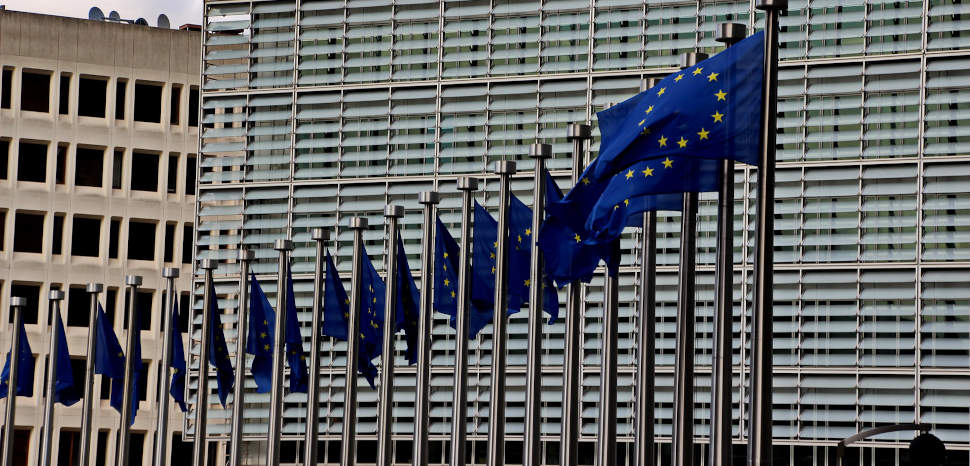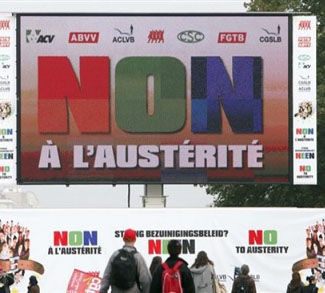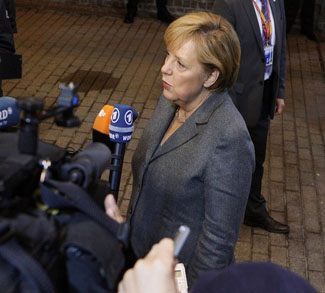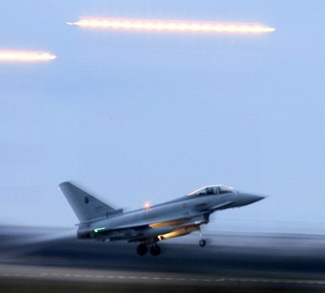€1.824 trillion ($2.1 trillion) is the staggering sum that constitutes the European Union’s (EU) collective COVID-19 response fund. In a historic first, European leaders have empowered the European Union to take on €750 billion ($890 billion) in collective debt. However, in their haste to clinch a deal, an issue crucial to the function of the Union fell by the wayside: the rule of law. Even before the emergence of COVID-19, countries like Hungary and Poland were sliding ever closer to autocracy, and the pandemic has created an almost ideal environment for wannabe autocrats. Thus, if the recovery plan is not handled carefully, the bloc might end up directly funding efforts to undermine its fundamental democratic values and the rule of law.
Bankrolling Autocrats and Oligarchs?
Or more accurately, the risk is actually providing further funding, since EU subsidies have already become something of a personal slush fund for European leaders with autocratic tendencies. Facilitated by feeble independent institutions and a weak judiciary in Central and Eastern Europe, large chunks of the European Union’s agricultural subsidies in the region go only to a connected few. Instead of keeping rural communities alive, these subsidies, which amount to more than a third of total EU spending, have helped create an oligarchic “elite:” a class that has a vested interest in further undermining the rule of law and keeping their benefactors in power. In terms of democratic backsliding, some of the worst offenders have also been the largest recipients of funds.
Hungary, which holds the notable distinction of being the only EU country that can no longer be considered a full democracy, received €46.5 billion ($53.14 billion) in EU funding between 2007 and 2020, which is equivalent to more than 33% of its 2019 GDP. Hungarian Prime Minister Victor Orban has used EU funding to enrich both his family and friends. In return for this largess, his allies have consolidated the vast majority of the country’s media under the roof of a pro-government media foundation, while independent media is finding itself cut off from revenue. Aside from Hungary, the worst offender in terms of democratic backsliding is Poland, which is the largest beneficiary of EU funding, receiving more than €207 billion ($236.57 billion) in the same period, equivalent to almost 40% of its 2019 GDP.
Their actions constitute sufficient grounds to execute the European Union’s “nuclear option,” an Article 7 procedure that could ultimately result in the loss of any rights of membership. In reality, neither Poland nor Hungary has much to fear as actually completing this procedure requires the unanimous approval of the member states, with Hungary effectively preventing Poland from being sanctioned and vice-versa. Yet, while Hungary and Poland represent the most egregious examples, they are far from the only offenders.
Lacking the Tools or the Will to Use Them?
While there is a European Anti-Fraud Office (OLAF) responsible for investigating corruption, it can merely report its findings to national authorities and corrupt governments are unlikely to prosecute themselves. In order to close this gap, a European Public Prosecutor’s Office (EPPO) was set-up, but neither Hungary nor Poland have signed on to the EPPO. Although European leaders have agreed to an ambiguously worded pledge in favor of rule of law conditionality, for the time being, it seems that this idea has become yet another victim of the pandemic.
Fortunately, there might be no need for any new mechanisms. Arguably, the European Commission, the EU’s executive branch, already has the authority to cut off access to European Structural and Investment funds. One of the more promising approaches the Commission could take is utilizing Article 142(a) of the Common Provision Regulation, which states that payments may be suspended if “there is a serious deficiency in the effective functioning of the management and control system of the operational program.” Essentially, where there is no rule of law, there can be no effective management and control system. Therefore, what the Commission has been lacking is not the authority to take action, but the will to do so.
While it would be preferable to establish a dedicated rule of law mechanism, the Commission must be prepared to move ahead without one. The European Union’s inaction not only emboldens the bloc’s budding autocrats but also demoralizes anyone opposed to this kind of democratic backsliding. After all, it is unlikely to be a coincidence that one of Hungary’s last remaining independent news outlets was effectively silenced mere days after European leaders struck their historic deal.
Making or Breaking the Union?
What has prevented the Commission from taking action until now was the fear of exacerbating fissures within the European Union and paralyzing its decision making. However, democratic backsliding represents an existential threat to the European Union just as much as the current pandemic does. If the bloc ceases to be a Union of democracies, piece by piece it will simply cease to be. Accordingly, if the von der Leyen Commission wishes to be taken seriously at home or abroad, it must finally utilize the means that are already at its disposal, to hold its wannabe autocrats to account and finally address this issue head-on. If this idea seems far-fetched, it should be pointed out that for the first time in its history the European Union is also about to take on significant amounts of collective debt based on a rather obscure article in the EU treaties.
To be clear, even implementing full rule of law conditionality for the bloc’s funds will not magically reverse the democratic regression in some EU member states, but at least the bloc does not have to actually fund its development. Conversely, doing nothing to address the flaws in the EU funding system, at a time when massive sums are about to be injected into it, would not merely facilitate the slide toward autocracy within the Union, it would turbocharge it.
The views expressed in the article above are those of the author alone and do not necessarily reflect the official position of the NATO PA or any of its members.
The views expressed in this article are those of the authors alone and do not necessarily reflect those of Geopoliticalmonitor.com or any institutions with which the authors are associated.




